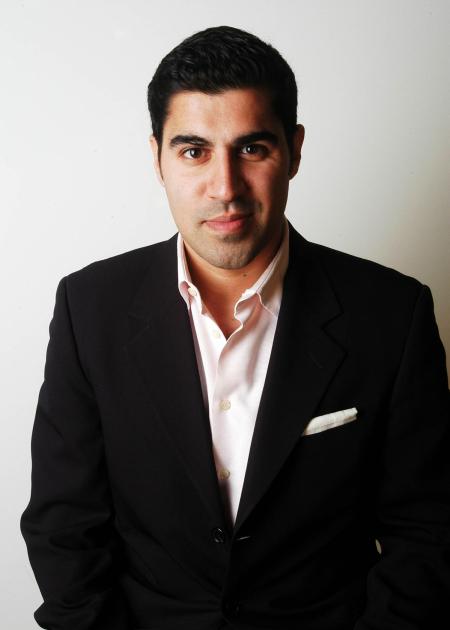
Parag Khanna, a senior research fellow at the New America Foundation (where he co-directs the World Economy Roundtable and advises the US National Intelligence Council) and a senior fellow at the European Council on Foreign Relations, says Indians should focus on India instead of trying to compete with China.
He discusses the problems hurting India's economy, Lokpal bill, smart decisions India has made and global capitalism in an interview to Faisal Kidwai.
Here are the excerpts:
What do you think are the reasons for the slowdown in the Indian economy?
The economy is not down relative to other economies. Of course, there is a slowdown in growth, but it's definitely not some kind of a dire picture. The country is still growing at a projected rate of 6 per cent. Growth figure is just an 'N' number, so the question is of input.
Some of the inputs that are lagging are in areas such as infrastructure. Manufacturing is one sector that can definitely benefit growth. Unfortunately, there is slowdown in that area. So the inputs need to be there.
Then there is corruption and bureaucracy.
So, these are the fundamentals that India needs to really take care of to maintain solid growth. I have shown in my works that there is a correlation when a country spends 8-10 per cent of its budget/GDP on infrastructure, you start to see sustained high growth. And India is only now starting to commit that kind of resources to infrastructure. That is going to take time to pay off.
...
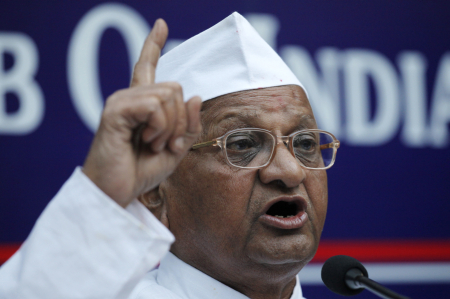
Are you seeing the kind of commitment that is needed in infrastructure spending?
No, unfortunately, not. There is a need for a nationwide infrastructure spending and that is still really, really lacking.
You have mentioned that corruption is a problem that is hurting India's growth. Many see hope in Lokpal bill. What is your view?
Lokpal Bill and other such measures are all fine, but the problem is that they just add one more layer of oversight and so forth.
Sometimes what is needed is an isolated agency that is not touched too much by the parliamentary politics with a firm, long-term commitment to getting things done.
And infrastructure needs to be that thing that every government supports year after year with spending. What we need is a long-term, year-after-year commitment to get things done.
Lokpal is fine but what is needed is much more streamlining of these things.
Do you see the streamlining happening?
No, the streamlining is not happening. You don't see it in telecom; you don't see it in infrastructure and in quite a few necessary areas.
Then there was the backlash against the foreign direct investment in the retail sector. So, there are many areas that are extremely problematic.
For instance, take telecom. Every time I go from one state to another, my mobile phone stops working properly. The whole Licence Raj is hurting the growth, it remains the underbelly of the problems.
...
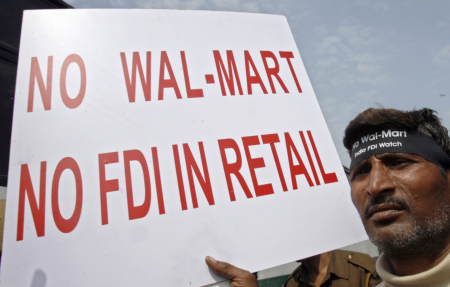
The growth is fragile because it is built on a crumbling base, on regulatory framework and it is an extremely inadequate sort of system.
I think the FDI issue has been an interesting case because, quite frankly, in the media it has been portrayed as a struggle between the forces of globalism and liberalism versus the parochial local interest. I think that is not really true.
If this were a bill being offered in China, you would see that they would draw the bill in such a way that it would suddenly open up 61 per cent in the sector.
But smart countries don't do that. All smart countries go step by step and make sure they preserve local advantage.
I don't think India is doing that nearly sufficiently enough. India has done a good job in fighting off the encroachment from the United States and Europe on banking and insurance sectors. That is where we are seeing growth. The Indian retail banking sector is witnessing good numbers. That has also saved India from some of the nasty things that have happened in the financial sector abroad.
So, in that sense, India has been smart.
But in areas where India needs capital or technology, foreign investment has fallen. India is the only emerging country where the FDI has fallen and that is very embarrassing.
...
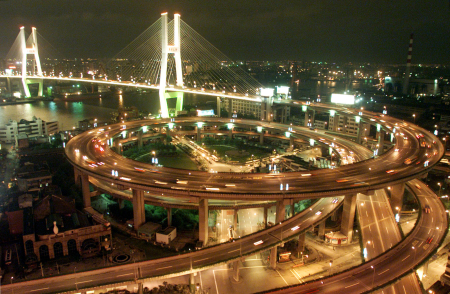
You have compared how the system works in China with how things are in India. Do you think India, with its inherent advantages, can overtake China?
I don't agree that India is better than China. India's economy is seven times behind China. There is an infinite gap that India needs to make up. I don't think India will make up that gap anytime soon.
But more than that, India's goals are not necessarily competitive with China's. We need to focus on how Indian businesses are performing and how the country's multinationals are doing on the global stage. How the country's infrastructure is shaping up.
These are the questions that need to be asked and not whether we are as big as China. China recently overtook Japan but you don't see anyone in Japan actually care. They focus on themselves. And that is what Indians should do.
...
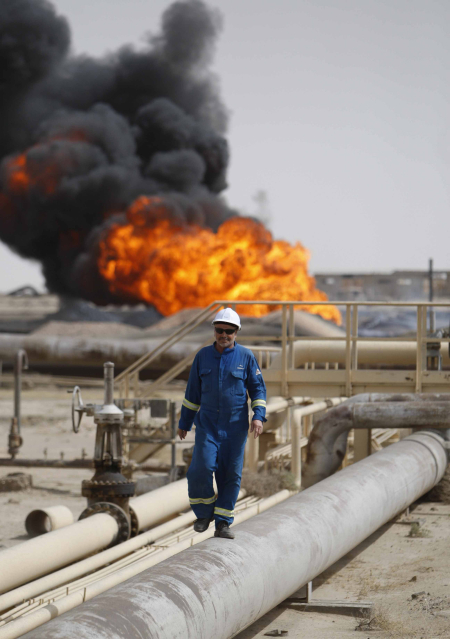
In your international bestsellers, How to Run the World: Charting a Course to the Next Renaissance and The Second World: Empires and Influence in the New Global Order, you have spoken about how the world is moving towards multi-alignment. What do you mean by multi-alignment?
What I mean is that every one is in alignment with every one else. You see it in all directions. I call that multi-alignment.
What it means is that India should be making friends in all directions, with Japan, the United States, Brazil, continue its relationship with Russia, strengthen ties with Europe, keep investing in Africa, all of these are pivotal.
There has to be an Indian global map for India. For instance, it is disappointing that India has hardly any presence in Central Asia, which is such a crucial region.
I have been very disappointed that India has not stood its ground on issues like IPI Pipeline {IPI, or Iran-Pakistan-India, a proposed pipeline to deliver natural gas from Iran to Pakistan and India. In 2009, India withdrew from the project over pricing and security issues, and after signing a civilian nuclear deal with the United States in 2008}.
...
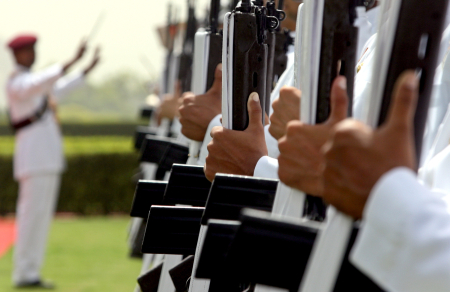
The energy relation with Iran is essential. Investing in infrastructure corridor through Pakistan is essential.
Every one gets their oil from unstable places. Every one has to deal with the fact that oil is coming through unstable neighbours. China has a pipeline coming through Turkmenistan. India is too emotional about these things. You have to build these pipelines through Pakistan and get whatever resources you can.
If someone blows it up, you just don't pay. Deal with it as the world deals with these problems, end of story. India has to grow up and deal with it. I have travelled a lot {in Central Asia and Middle East} and all these pipelines come from nasty neighbours, but the world deals with them.
So, you think there is something lacking in India's foreign policy?
Some things are going very well, while other things are slow. India is doing a good job in reaching out to Indonesia, Japan and Vietnam.
Some of the Indian businesses have done well, even in China, while others have struggled. The overall trade deficit with China is worrying but every country has a trade deficit with China, so what can you do about it?
India's maritme strategy is also a very positive step. It is not focused on countries like Pakistan, Japan and China and on issues like nuclear weapons. Investments in navy are very important.
Overall, the Indian foreign policy has been quite good.
...
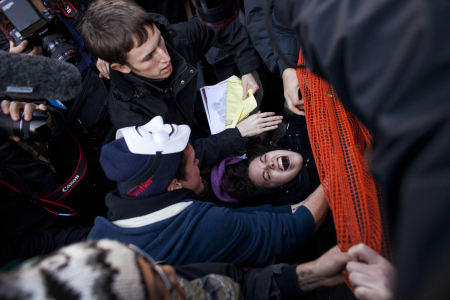
The world, especially the Western countries, is seeing continuous protests against capitalism. Many are also predicting the end of capitalism. What is your take on that?
There are many kinds of capitalism. Not just one kind. There is laissez-faire, free-market capitalism model, but even the United States isn't following it anymore.
Then there is the European-style social democratic capitalism, which is very regulated and dependent on subsidies. Then there are Chinese authoritarian capitalism, Saudi Arabian capitalism, etc.
The notion that capitalism in theory needs revision is something for academics to deal with. In the real world, I see many models of capitalism and they are in a constant state of experimentation.
In my opinion there is a role for the government in the economy. I think that given massive labour dislocation due to technology and globalisation, governments have to provide a certain foundation or guarantee or support. I think they {the governments} are learning that they have to provide support otherwise there will be severe dislocation and no correction.
That is what the United States is experiencing right now.